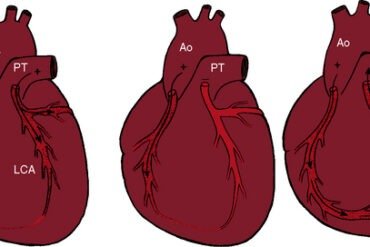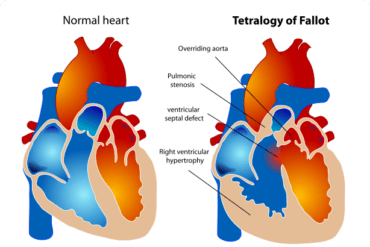Allergies or a Cold? Recognizing the Symptoms

Table of Contents
- Understanding Allergies vs. Common Cold
- Common Symptoms of Allergies
- Differentiating Allergy Symptoms
- Tips for Managing Allergies
- Seeking Professional Help
Understanding Allergies vs. Common Cold
Allergies and common cold are both common causes of symptoms such as sneezing, congestion, and a runny nose. However, it is important to understand the differences between the two in order to properly recognize and manage your symptoms.
Allergies:
- Allergies occur when your immune system overreacts to a harmless substance known as an allergen, such as pollen, pet dander, or dust mites.
- Symptoms of allergies include sneezing, itching, watery eyes, nasal congestion, and a runny nose. Allergies do not typically cause a fever or body aches.
- Allergy symptoms can persist as long as the person is exposed to the allergen and can vary depending on the individual’s sensitivity and the specific allergen.
- Allergies are not contagious and can be triggered at any time of the year, depending on the allergen.
- Common treatments for allergies include antihistamines, nasal sprays, and avoiding exposure to known allergens.
Common Cold:
- A common cold is caused by a viral infection, usually transmitted through close contact with an infected person or touching contaminated surfaces.
- Symptoms of a cold may include sneezing, sore throat, nasal congestion, runny nose, cough, and occasionally low-grade fever and body aches.
- Unlike allergies, cold symptoms typically improve within a week to ten days. However, the severity and duration of cold symptoms can vary from person to person.
- Colds are highly contagious and tend to spread during the colder months.
- Rest, fluids, over-the-counter cold medications, and good hygiene practices (e.g., washing hands frequently) are common remedies for managing cold symptoms.
It is important to differentiate between allergies and a common cold to determine the appropriate course of action. If you are unsure about your symptoms, it is always best to consult with a healthcare professional for an accurate diagnosis and proper treatment.
Common Symptoms of Allergies
Allergies occur when the immune system overreacts to normally harmless substances in the environment. It can sometimes be challenging to distinguish between allergies and a common cold, as they share some similar symptoms. However, recognizing the key signs of allergies can help you differentiate and seek appropriate treatment. Here are some common allergy symptoms:
- Sneezing: Frequent and repetitive sneezing is a common symptom of both allergies and colds. However, if your sneezing continues for an extended period, occurs in specific environments, or is accompanied by other allergy symptoms, it is likely due to allergies.
- Itchy, watery eyes: Allergies often cause itching and watering of the eyes, while colds usually do not. If you experience these symptoms alongside a runny nose or sneezing, it is likely due to allergies.
- Nasal congestion: Both allergies and colds can cause a stuffy or congested nose. However, allergies typically cause persistent congestion without other cold symptoms like fever or body aches.
- Scratchy throat: Allergies can cause a scratchy or itchy feeling in the throat, whereas a cold may cause a sore throat.
- Clear mucus: If the mucus coming from your nose is clear and watery, it is likely due to allergies. In contrast, colds often cause thicker, yellowish mucus.
- Recurrent symptoms: Allergies tend to recur seasonally or when exposed to specific triggers, such as pollen, dust mites, or pet dander. If your symptoms persist or return during the same time each year, it is likely due to allergies.
- Skin reactions: Itchy skin, hives, or a rash can be signs of an allergic reaction. These symptoms usually do not occur with a cold.
If you experience most of these symptoms and they last for an extended period, it is advisable to consult a healthcare professional for an accurate diagnosis. Allergies can often be managed through avoiding triggers, over-the-counter antihistamines, or prescribed medications, depending on the severity and type of allergies. Understanding the differences between allergies and colds can help you take appropriate measures to alleviate your symptoms and improve your overall well-being.
Differentiating Allergy Symptoms
When trying to determine whether you have allergies or a common cold, recognizing the specific symptoms can be helpful. While both conditions may have some overlapping symptoms, there are key differences that can help you differentiate between the two.
Allergy Symptoms:
- Nasal congestion and runny nose that is clear and watery
- Sneezing, often in rapid and repetitive sequences
- Itchy and watery eyes
- Itchy throat and ears
- Tickling or scratchy sensation in the back of the throat
- Coughing, especially if it is triggered by exposure to allergens
- Rashes or hives on the skin, often due to contact with allergens
- Wheezing or difficulty breathing in individuals with allergic asthma
Common Cold Symptoms:
- Nasal congestion with yellow or green mucus
- Sneezing, but less frequently compared to allergies
- Sore throat
- Fatigue or feeling generally unwell
- Low-grade fever, especially in children
- Mild headache or body aches
- Coughing, which may produce phlegm or mucus
It’s important to note that allergies tend to occur seasonally or in response to specific triggers, such as pollen, pet dander, or certain foods. In contrast, colds are typically caused by viral infections and can occur at any time of the year.
If you find yourself experiencing these symptoms and are uncertain if it’s due to allergies or a cold, consult with a healthcare professional. They can perform tests, ask specific questions about your symptoms, and provide a diagnosis.
Tips for Managing Allergies
Allergies can cause various symptoms that can be mistaken for a common cold. If you are experiencing persistent symptoms, it is essential to differentiate between allergies and a cold. Once you have determined that your symptoms are due to allergies, here are some helpful tips for managing them:
- Identify your triggers: Keep a diary to track your symptoms and identify common triggers. This can include pollen, dust mites, pet dander, or certain foods. Avoiding these triggers can help reduce your allergic reactions.
- Maintain a clean environment: Dust, pollen, and pet dander can accumulate in your home. Regularly clean your living space, including frequently vacuuming, washing bedding in hot water, and using allergen-proof covers for pillows and mattresses. Additionally, consider using an air purifier to filter out allergens.
- Monitor outdoor conditions: Pay attention to weather forecasts and pollen counts. On days when the pollen count is high, try to stay indoors, especially during peak hours. If you need to go outside, wearing sunglasses and a hat can help prevent pollen from getting into your eyes and hair.
- Take allergy medication: Over-the-counter antihistamines, nasal sprays, and eye drops can help relieve various allergy symptoms. Consult with a healthcare professional to determine the most suitable medication for you. If your allergies are severe or persistent, your doctor may prescribe stronger medications.
- Consider allergy shots: Immunotherapy, commonly known as allergy shots, can be an effective long-term treatment option. These shots gradually expose your body to small amounts of allergens, helping desensitize your immune system over time. Talk to an allergist to see if this treatment is suitable for you.
- Manage stress: Stress can worsen allergy symptoms. Engage in stress-relieving activities such as exercise, meditation, or pursuing hobbies. Taking care of your mental health can positively impact your physical well-being.
- Consult a specialist: If your allergies are severely impacting your quality of life or if you are uncertain about the cause of your symptoms, consider seeing an allergist. They can provide accurate diagnosis, personalized advice, and potential treatment options.
By implementing these tips, you can effectively manage your allergies and reduce the impact they have on your daily life. Remember, proper identification and understanding of your allergies are crucial to finding the most appropriate management strategies.
Seeking Professional Help
When it comes to differentiating between allergies and a cold, identifying the right symptoms can be quite challenging. While some symptoms may overlap, understanding the key differences can help you seek appropriate professional help. Consulting with a healthcare professional is crucial for an accurate diagnosis, effective treatment, and proper management of your condition. Here are some reasons why seeking professional help is essential:
- Expertise and knowledge: Healthcare professionals have the necessary education and expertise to differentiate between allergies and colds. They can take into account your medical history, conduct a physical examination, and order appropriate tests to determine the underlying cause of your symptoms.
- Accurate diagnosis: A professional diagnosis is crucial to ensure you receive the right treatment. Allergies typically result from an immune system response to certain triggers such as pollen, dust mites, or pet dander. On the other hand, colds are caused by viral infections. Proper diagnosis allows for targeted treatment, reducing symptoms and improving your quality of life.
- Personalized treatment plan: Once your healthcare professional has determined whether you have allergies or a cold, they can recommend an appropriate treatment plan. This may include medications to relieve symptoms, allergen avoidance strategies, or immunotherapy for allergies. A personalized plan addresses your specific needs and helps you manage your condition effectively.
- Prevention strategies: Seeking professional help also allows you to explore prevention strategies to minimize future occurrences. Professionals can provide valuable advice on reducing exposure to allergens, improving indoor air quality, and adopting lifestyle changes that can help prevent or manage allergies and colds.
- Monitoring and follow-up: Regular monitoring and follow-up visits with healthcare professionals can help ensure your symptoms are well-controlled and your treatment plan is working effectively. They can adjust your treatment as needed and provide ongoing support and guidance.
Remember, self-diagnosing can lead to inaccurate conclusions and ineffective treatments. Seeking professional help is crucial for an accurate diagnosis, personalized treatment, and comprehensive care.


























